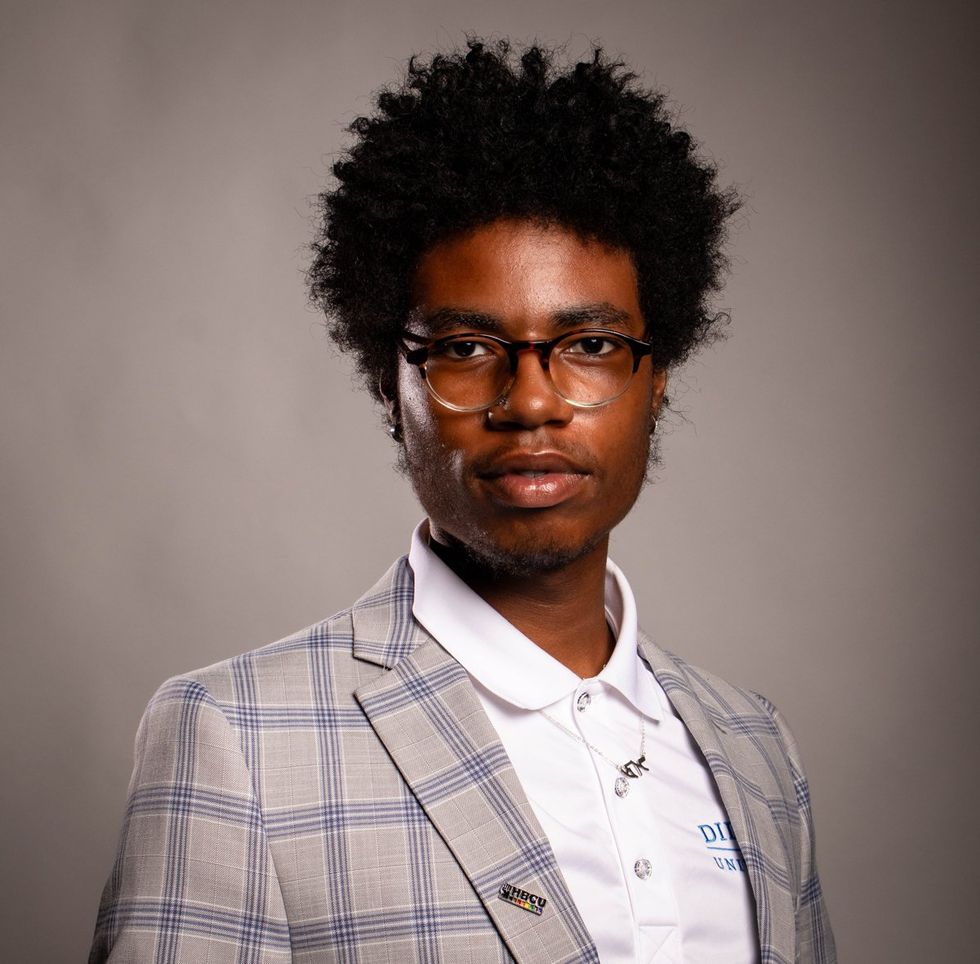Fewer Black Queer People are Taking PrEP. Meet the Students Fighting to Change That.
09/27/23
Cwnewser
By continuing to use our site, you agree to our Privacy Policy and Terms of Use.

In an urgent bid to counter the decline in the utilization of pre-exposure prophylaxis (PrEP) in the fight against HIV, particularly among Black and brown communities, the Human Rights Campaign (HRC) has instituted an initiative focusing on Historically Black Colleges and Universities (HBCUs).
A team of 12 students will take on the role of PrEP Peer Educators with a mission to combat HIV and AIDS-related stigma on HBCU campuses through public awareness campaigns focused on PrEP, HIV testing, and treatment options.
The Advocate recently held a deep-dive conversation with the director of the HRC Historically Black Colleges and Universities Program, Leslie Hall, and the associate director of HIV & Health Equity, Vanessa Castro, to delve into the nuances of this significant program. The discussion explored the contemporary landscape of HIV prevention efforts and the role the HRC’s program plays in shaping the future.
During the 2022 International AIDS Conference, it was noted that the fight against HIV is slipping due to decreasing access to PrEP, experts pointed out at the event in Montreal. The conference also highlighted the urgency to address the stigma still present around the virus and its prevention.
Detailing the inception of the program, Hall emphasized it was crafted to fill the knowledge void on HBCU campuses about PrEP and reduce stigma, a significant barrier hindering students from getting tested or even visiting wellness centers. He voiced concerns over the decline in Black and Brown individuals, specifically black gay men, initiating and sustaining PrEP usage.
This initiative took off with a grant from Gilead Sciences, allowing a cohort of student leaders to be trained as PrEP educators, breaking the chains of misinformation and guiding peers seeking prescriptions. Notably, the program has adjusted its focus, steering towards students who are not only well-rounded but comfortable discussing HIV and other related topics openly, Hall highlighted, emphasizing a strategy to prioritize areas and campuses with more significant needs and potential for outreach.
The program devised a strategy involving student leaders adept in sexual health and wellness, an approach grounded in the reality of HBCU campuses, many lacking health resources. Hall explained, “The reality is if you’re not at the top 10 or 15 largest HBCUs, your health center probably has one or two folks.”
Dr. Patrick Sullivan, a public health expert at Emory University in Atlanta, leads a team that has introduced AIDSVu, a pioneering PrEP use data platform that provides maps highlighting demographic and state-specific data. He points out that in 2021, while Black individuals represented 14 percent of PrEP users across the country, they accounted for 42 percent of new HIV diagnoses.
“If four in 10 new diagnoses are in Black people, then we’d like to see four in 10 Black people who are taking PrEP,” Sullivan remarked. “There’s a significant disparity, notably among Black and Hispanic communities, and between women and men. This disparity underscores the challenge of ensuring equitable access and addressing the unique obstacles faced by different groups.”
Highlighting the diversity in the student cohort involved in the program, Hall mentioned that they consciously included a significant representation of Black women, given the high rates of people living with HIV in that demographic. These students present themselves as experts, bridging the gap between their peers and access to PrEP.
Castro iterated the urgency of addressing the underutilization of PrEP in Black communities, where less than 8 percent are being prescribed PrEP.
“These conversations have been siloed for too long,” Castro stressed, outlining the initiative’s approach to empowering young people to take health into their own hands. She illustrated a transformative methodology focusing on the practical application of knowledge in students’ environments, such as establishing partnerships with local community organizations or initiating discussions with school administrators to bring necessary services to their campuses.
Castro explained that the program fosters relationships with community-based organizations and utilizes resources like mobile testing units to bring services closer to students.
“We focused on empowering young people to understand how they can better serve their community and create transformative changes by taking knowledge and applying it in their spaces,” Castro remarked, underscoring the critical role of destigmatization in the broader landscape.
On the logistics of selecting student leaders for this initiative, Hall mentioned a dynamic strategy encompassing outreach through social media networks and group interviews to evaluate comfort levels in discussing HIV and sexual health.
In a notable advancement, the program partnered with QCare Plus to facilitate an easy and confidential system for students to access PrEP. Students can use unique QR codes distributed through PrEP educators to undertake the process virtually, ensuring confidentiality and convenience. All of this is free.
Hall explained, “Once students feel comfortable taking the next step to explore the possibility of getting prescribed PrEP, they hand them a postcard with a unique QR code. It’s all confidential, giving them the freedom to go through the process without involving their parents if they are on their health insurance.”
Castro also noted HRC’s “Wellness in Action” initiative, which provides self-testing kits, emphasizing the convenience and comfort it accords individuals in the testing process.
At a crucial juncture where the COVID-19 pandemic has somewhat shadowed the persistent battle against HIV, this initiative stands as a beacon of hope, ensuring that the fight continues with renewed vigor, harnessing the power of knowledge and the spirit of community collaboration to foster a future devoid of HIV-related stigmas and disparities.











